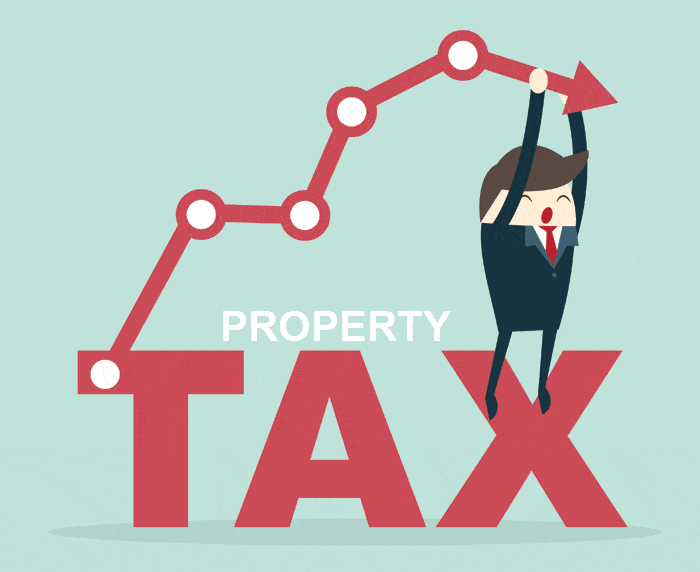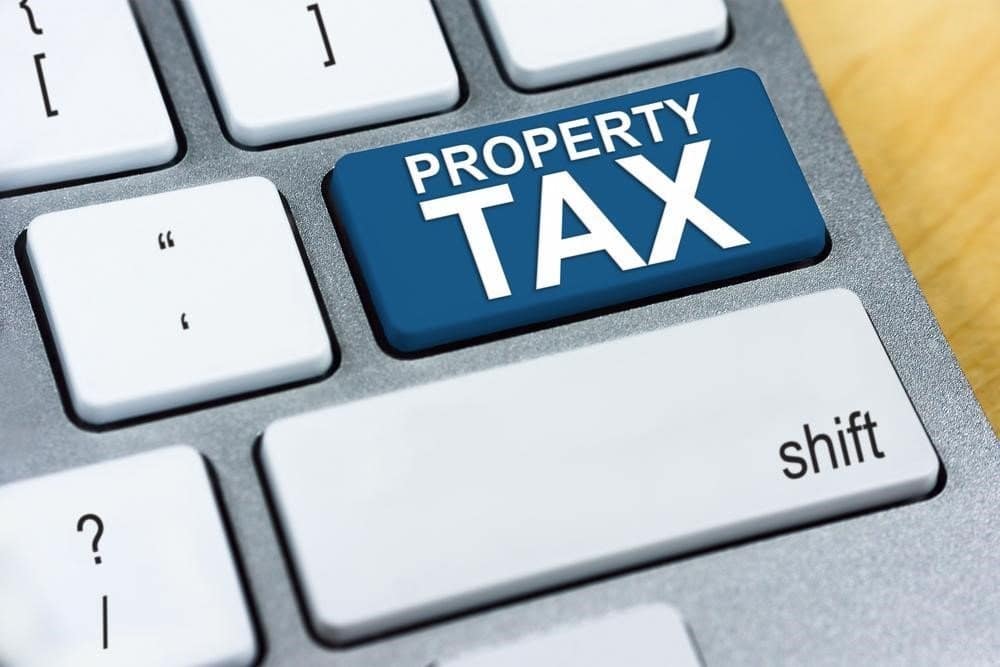
NY Property Grievance Info, Property Tax Grievance
Property taxes pay for numerous things within your community. From funding fire departments to maintaining local parks, to paying for schools, the revenue generated from property taxes goes towards making your community a better place to live.
Unfortunately, all that goodness doesn’t mean that your tax bill might seem a little bit on the high side.
Although beneficial, property taxes can be a financial burden – especially as they have the tendency to rise steadily over time.
While you’ll always have to pay your taxes, you can get a break. Here are a few simple ways to lower your property tax bill to a more manageable level, while still supporting your community.
Understand Your Bill
Before you can do anything to change your tax bill, you need to understand where the numbers come from.
Property taxes are calculated by using two numbers: the tax rate, and the current market value of your property. The tax rate is set by law, and although it can change every year, there’s nothing you can really do about your municipal tax rate.
So, if you’re looking to change your property taxes, you’ll need to focus in on your home’s current market value.
Determining Value
To determine your home’s current value, an assessor, hired by the local government, reviews your property. The assessor may actually come to your property; however, they often value your property remotely, using old records, software, and tax rolls. That’s why it’s important to review the inventory your town or county has for your home. Things like an extra bathroom, an old deck or inground pool which no longer exists can cause your tax bill to be higher than it should. These records are available on your assessor’s website for most, some homeowners may have to pay a visit to their local town or county offices.
Once your property’s value is determined, the tax office multiplies said value by the tax rate, then sends you the bill.

Making a Change
So, how can you change your tax bill? The only real way is to get an assessor to adjust the perceived market value of your home.
A Property’s Market Value is based on a few factors, many of which are relative. The market value takes into consideration everything from the structural wellbeing of your property, any recent sale prices, the sale prices of other comparable homes in the neighborhood and even your home’s “curb appeal” – or how nice it looks from the outside when you first see the home from the curb.
Some of these things, such as sale prices of other homes, are out of your control, however, you can make sure that any other facts that are determining the value of your home are correct and up to date. Go down to the tax assessor’s office and ask for your tax card. It’s a compilation of all the information the municipality has collected about your property over time, from lot size to room dimensions to features, fixtures, and renovations.
Review the card and point out any discrepancies – they’re more common than you think, and the tax office has an obligation to correct them and reassess your home.
If everything’s in order, then it’s time to go a bit deeper to update your tax bill.
Look to Your Neighbors
Home values are available to the public at the tax office, so when you’re going to check your own tax card, have a glance at other homes in the neighborhood. While you can’t change the property value of your neighbors, you can use their bills as a base argument for your own.
For example, let’s say your four-bedroom, single car garage home is valued at $500,000, yet your neighbor’s four-bedroom, two-car garage home with a swimming pool was only valued at $375,000. That discrepancy is a very convincing argument to get your local tax assessor to re-evaluate your home – preferably, this time, on an in-person walk-through.
Check for Exemptions
Look to see if you qualify for a tax exemption. New York State Property Tax Exemptions include:
- STAR (School Tax Relief)
- Senior citizens exemption
- Veterans’ exemption
- Exemption for persons with disabilities
- Exemptions for agricultural properties
Walk This Way
When you’ve got a tax assessor coming to your home, you should be there every step of the way. You don’t want the evaluation to focus on only the visible, positive features of your home. A new fireplace or marble counters can easily outshine old windows or small cracks in the ceiling, so you’ll want to be there with the assessor to be sure that both the positive and negative qualities of your home are being counted towards its perceived market value.
File a Tax Grievance
If you’ve done all you can and haven’t managed to get your tax assessment office to lower your property tax, you still have the option of filing a tax grievance. A property tax grievance is a formal complaint, filed on your behalf, against your town’s assessed value on your property based upon comparable sales. This is the most effective way for most homeowners to reduce their tax bill.
You don’t have to do it alone either. Heller & Consultants Tax Grievance has achieved record reductions in property tax savings for homeowners in Nassau County and Suffolk County. Apply online today.


NY Property Grievance Info
Life moves fast, just fast enough to forget about grieving your property taxes. Our team at Heller & Consultants Tax Grievance wants to make sure that you are minimizing the expense of your property taxes.
Taking the time for a phone call to the experts at Heller & Consultants Tax Grievance can save you a lot of money. Adam Heller and his team help over 6,000 Long Islanders every year fight for a property tax reduction. Their efforts are highlighted by holding the record for the largest reductions in property taxes in Nassau County of $73,000 and Suffolk County of $17,000. Holding the record in both counties is an impressive accomplishment that demonstrates a high level of expertise.

The opportunity to grieve property taxes should be taken advantage of every year however some homeowners are deterred by some misconceptions about the process. Grieving your property taxes will not cause them to increase. County or town officials will not visit your home to inspect the property since grievances are filed based on public information. Grieving taxes will not affect your eligibility for STAR or VA programs that already help reduce property taxes.
Filing a successful property tax grievance will have benefits beyond a reduction. Recent changes capping State and Local Tax (SALT) deductions at $10,000 on federal tax returns mean that the amount of property taxes paid on a home has a greater impact on the market value. Studies have shown every $1,000 saved on property taxes can raise the value of a home by $10,000. Lowering your taxes by consistently grieving will help maximize the value of your home when you decide to sell.
Please remember these important deadlines so you do not miss the next opportunity to grieve your taxes.
-
Nassau County – March 1st, 2020
-
Suffolk County – May 19th, 2020
Reach out to the experts at Heller & Consultants Tax Grievance with any questions relating to your property taxes and to file a property tax grievance. Adam and his team look forward to helping you with your questions and most importantly defeating the taxman.

Heller & Consultants Tax Grievance – Nassau 516.342.4849 Suffolk 631.302.1940

News, NY Property Grievance Info, Property Tax Information
Important - Nassau County Filing Deadline March 1, 2024
Two new measures were approved by the
New York State legislature that will change the way the Star Rebate Program works.
Part 1: Homeowners earning between $250,000 and $500,000 a year will get a check for their STAR rebates this year, rather than receiving the savings directly in their school-tax bills.
Part 2: Any STAR recipient that doesn’t switch to a check will miss out on the two percent increase in their tax savings this fall.
The changes won’t impact eligibility – just whether homeowners receive the rebates in a check or in their school-tax bills, and not everyone will feel the change.
Those who owned their homes before Aug. 1, 2015, and earn less than $250,000 a year, will still get the STAR savings in their tax bills unless they opt for the check.
If property owners want to switch to the STAR credit program, the New York State Department of Taxation and Finance suggests that they register as soon as possible, and no later than two weeks prior to the date when the final assessment roll is published.
A spokesperson for the tax department said the system is working well and that homeowners should feel confident they will get the checks prior to when their school taxes are due.
Last year, the agency said it issued 99.5% of STAR credit checks prior to the school tax bill due date.
What’s STAR?
The School Tax Relief (STAR) program is a property tax rebate program available to New Yorkers whose household income is $500,000 or less – only primary residences are eligible. Around 2.6 million homeowners in New York receive the STAR tax break, which averages to around $790 per year per household.
The tax break is part of a $3 billion program that started in the mid-1990s, which helps New Yorkers curb the impact of having among the highest school taxes in the nation.
Why the Changes?
Under the previous system, schools give homeowners the STAR savings and then get reimbursed by the state — which showed up as a budget expense for the state. The new system gives the savings directly to the homeowners in a check, so it counts as a “personal income tax credit,” and shows up in the state budget as a reduction in tax revenue – not as state spending.
That change is sizable for the state’s finances. The new system is estimated to lower spending by $238 million in the fiscal year. Plus, capping the growth in the program for those who don’t get a check is another potential money-saver for the state.
Critics have asserted that the STAR program’s alterations have created falsities in the state’s budget by changing how the program functions, from a homeowner’s property tax discount to a state-issued ‘personal income tax credit’ that is issued as a check. According to an article in lohud. the Director of State Studies for the Citizens Budget Commission, David Friedfel asserts “the state is able to artificially make state spending appear lower than it is.”
The state defended the changes, however, saying it will help cut out fraud in the program and streamline payments. The goal of the changes, as explained by Freeman Klopott, spokesman for the state Budget Division, is to transfer people to the credit program, which is more efficiently administered. This will help to prevent abuse of the system. It will also separate the STAR savings from the tax bill, making districts more accountable to taxpayers.
What About Mortgage Escrows?
The changes will impact homeowners who pay their taxes through a mortgage escrow because they will pay more per month to cover the taxes, and then have to wait for reimbursement through the STAR check.
Are Seniors Affected?
Senior citizens who get Enhanced STAR are not impacted by the changes and will still get the savings upfront on their tax bills although those receiving Enhanced STAR will now have to enroll in an income-verification program to get the rebate. Enhanced STAR is available to homeowners age 65 and older with incomes of $86,300 or less. This program benefits 665,000 seniors and averages $1,400 a year.
For more information on the STAR program or to register, please visit https://www.tax.ny.gov/pit/property/star/default.htm.

Nassau Property Tax Grievance, NY Property Grievance Info
Nassau County residents have many questions that need to be answered regarding the
new county-wide assessment. Since 2011, Nassau County’s tax rolls have been frozen and the town has recently decided to pursue a property reassessment for its current residents.
People have been taking advantage of challenging their property taxes, and the county is having trouble keeping up with the payouts; the county has therefore borrowed hundreds of millions of dollars.
Laura Curran, a county executive, states that the reassessment is necessary because it will allow the county to have up-to-date accurate records when appearing in court for a tax grievance.
When the reassessment occurs, it is estimated that 52% of residents will see a property tax decrease and 48% will have a tax increase.
Nassau County will learn what changes have occurred to their property taxes once the county has mailed out notices. The letters also contain information regarding 2017-18 taxes for local schools and other entities, and also include an estimate for 2020-21 county taxes.
David Moog, a Nassau County Assessor, states that more homeowners will see their property value rise since becoming frozen in 2011. Moog also states that homeowners are more likely to see an increase in their taxes if they have filed for tax grievances over the years. This means that tax bills will not necessarily rise in accordance with property value. The reassessments will also vary greatly by the school district.

FAQ
What is the purpose of the reassessment?
The county reassessment, which will impact 400,000 residential and commercial properties in Nassau, will take effect in the 2020-21 tax year. Nassau County officials from both political parties agree that the new reassessment is needed.
Nassau County struck deals with third-party companies in order to reassess properties in the county. These outside companies ultimately found that the current property taxes were too low for the present market values.
Why are the reassessments important?
Due to the ability to file tax grievances, homeowners have changed the county’s tax burden significantly. Those who have successfully won tax grievance cases have created an uneven tax weight for the rest of Nassau’s residents. A current reassessment will help level the playing field once again.
How will the reassessment affect Nassau’s residents?
The majority of Nassau’s residents will experience changes to their annual property taxes. With the new reassessment, it is estimated that 48% of residents will experience an increase and 52% will experience a tax reduction. Most homeowners that will see the largest increases will be those that have listened to their county officials and filed past tax grievances. Essentially being punished for doing what the county instructed them to do.
Nassau County officials project that 39,000 residents will see an increase of $3,000, while 33,000 will see a decrease of $3,000. Approximately 11,000 residents will experience an increase of $5,000, while 10,000 residents will see a reduction of $5,000.
Tax Impact Notices, which the county has provided to Nassau residents, show the 2020-21 tax projections.
How has the level of assessment changed?
Nassau County executives signed the reassessment in March. According to New York’s statewide law, the first year of assessments are capped at 6% and then the cap increases to 20% for the following five years.
Republican parties in Nassau have accused Curran of going back on her promise to adhere to a bill that would have had lower changes in annual tax rates for residents, including those who have successfully filed challenges. Democratic parties have also blamed Curran for hurrying into a reassessment that increases tax percentages for county residents.
The Taxpayer Protection Plan
The Taxpayer Protection Plan, which was proposed by Curran, would phase in the new tax bill. Essentially, homes would reflect the assessed market value by the fifth year of implementation. This plan would also moderate tax increases, but also slow down decreases for other homeowners.
What do homeowners think?
Residents who challenged their property taxes multiple times over the years are more likely to experience annual tax increases compared to those who have not.
There are many homeowners that are upset about the increases in property taxes. These taxpayers have hired tax grievance companies and have fought long and hard for reductions, and feel the new bill will counteract their efforts.
Supporters of the reassessment state that it is crucial for the homeowners who have been unknowingly overpaying for annual taxes to get on an even playing field. The frozen tax rolls have allowed for some residents to grieve and pay less, while others are stuck paying more than their home is valued.
Curran believes she is one of the only Nassau County executives to face the problem head-on. She blames the previous administration and lawmakers, as well as tax grievance firms for allowing the problem to occur.
What problems have officials faced so far?
Tax impact notices for county residents that were posted online had to be corrected because the assessor used preliminary, and not final, values. The administration was able to correct this error under Curran’s authority.
Nassau County only allows for a 6% increase in the first year of reassessment, and many tax impact notices were incorrect in this regard. Those, too, were corrected by county officials.
Stating it was normal to make corrections after homeowners received tax notices, Moog worked to correct approximately 20,000 tax disclosure notices after errors were found.
What happens now?
January 2nd is the tentative date for the release of the new tax impact notices. Residents have until April 30, 2019, to file appeals. After the appeals have been received, the county will review the tax rolls and publish a final tax roll in April of 2020.


NY Property Grievance Info
Setting financial goals is a crucial part of maintaining a healthy relationship with money. For a homeowner, this is especially evident. Owning a home is a huge, important investment, and all homeowners should be aware of the smart financial money moves they should be making.
Without realizing it, your home could play an important role in achieving your financial goals. The following tips can help you make smart money moves when it comes to your home!
Focus on the loan principal
When you make a payment on a mortgage loan, you are paying both principal and interest. By making an extra payment, you have the ability to shave around seven years off of a 30-year mortgage.
When making the extra payment, be sure to specify that you are intending on putting money toward the loan principal. This is especially important to do when nearing retirement since eliminating the largest monthly bill will lessen the financial stress when receiving a fixed income.
Consider refinancing your mortgage terms
Mortgages are available in different terms – including 10, 15, and 30-year loans. Refinancing can possibly lower your interest rate on the overall loan. If interest rates were significantly lower when you originally obtained your mortgage, you may not see a great difference in interest payments; if the interest rate is lower today, your interest payment may be much lower than before.
Be aware that while refinancing may save you money in interest since you are compressing your mortgage into a shorter term, you will likely have a higher monthly principal payment. You will save money in the long run but will be paying more on a monthly basis.
Compare insurance rates
Fortunately, insurance rates are not set in stone and can always be changed. That means that comparing homeowners insurance is strongly recommended in order to find the rates that work best for you.
You can generally find savings if you bundle insurance together, such as homeowners insurance and auto insurance. Depending on your provider, you can bundle all of your insurance needs with one company and receive a discount. Raising the amount of your deductible can also save you around 25% on insurance premiums.
Some insurance companies also provide discounts for home improvements, including security systems and changes made to protect against natural disasters. Shopping around yearly for homeowners insurance can ensure that you are receiving the best deal for the current state of your home.
Review your property tax assessment
Property taxes are determined by county assessors. Since market values are constantly changing, property taxes increase and decrease from time to time. This means that your home’s value may be higher or lower than the county’s current assessment.
If you believe your home is not worth what the county has previously assessed it for, and feel you are paying too much in property tax, you can challenge your taxes with local grievance firms.

Check out what homes in your neighborhood are being sold for so you can get an idea of the tax rates in your area. Property values are available to the public and can be found online. Once you have decided to challenge the property tax assessment, contact a local grievance firm to assist in your tax challenge.
Invest in remodeling your home
It is no secret that remodeling has the ability to increase the value of your home. Not only can you create an environment that is personalized to your taste, but updated renovations also create a higher value property.
Remodeling a home does not come cheap, so be sure to renovate areas that will provide the greatest return on investment. Explore funding options, including but not limited to home equity loans and personal loans. Depending on what you need, many funding options are available and can be compared with the help of a reliable lender.
Consider investing in an income property
In today’s era, rental properties and Airbnb’s are quite common for both renters and landlords. The possibility of creating an extra income through a rental property can become a reality in 2019. With solid credit scores, low debt, and consistent income, purchasing a second property to generate additional cash flow is a great way to increase financial security.
Low market rates make taking out a second mortgage possible for many people. You can generally find better deals on properties during the off-season when they are not in demand and are lower in cost.
Conclusion
Formulating a better financial game plan for 2019 can help you achieve your money goals. Creating targets and tracking progress is key to becoming successful, and your home can be used as an important tool in building financial wealth. Follow these tips to utilize your homeownership to your advantage.



NY Property Grievance Info
 Property tax is a tax levied on real estate and occasionally, on other property, you own as well. The amount of property tax you owe is usually assessed by your local government and is based on both the location of the property and its value.
Property tax is a tax levied on real estate and occasionally, on other property, you own as well. The amount of property tax you owe is usually assessed by your local government and is based on both the location of the property and its value.
How to calculate property tax
Property tax is determined by multiplying the value of the property by the tax rate. Here’s how the value of your property and it’s given tax rate are determined:
The Value of the Property
Assessors, also called appraisers, are people who work for the local tax authorities, tracking the value of every piece of land and or property in their district, be it in a city, county or otherwise.
These appraisers maintain databases of the tax value of the property, which are typically less than the market value of the property. This is a common practice to keep tax rates more manageable (think: the higher the value of the property, the higher the associated taxes will be), although how much less will differ by area.
Your home’s value is often tracked using sophisticated mapping software that takes into account permit applications for remodeling projects, rental contracts, recent inspections, changes in resource use, reports from neighbors and more.
Cars, machinery, and other property may be subject to personal property tax as well.
The Tax Rate
Property tax rates are based on something known as the “millage rate,” which is the amount per $1,000 of property value used to calculate local property taxes. Your property tax rate is likely to be expressed in a number of “mills,” where one “Mill” is equal to one-thousandth of a dollar.
For example: if the property tax rate on homes is 15 mills, homeowners in that area will pay $15 in tax for every $1,000 in assessed home value. Thus, a house that’s valued at $200,000 will owe $3,000 in property taxes.
Some taxing authorities apply the property tax rate only to a portion of the home value, rather than to the full home value, greatly reducing the amount of property tax owed. In the end, it’s up to the local taxing authority to determine the tax rate.
What property tax pays for
Your property taxes generally go to the local government and are used to pay for community services such as schools, police and fire departments, road construction and other locally-based projects.
Like all citizens, you’re responsible for paying your property taxes in full and on time – failing to do so can result in the authorities placing a tax lien on your property.
While it’s not a seizure of assets (no one will take your house,) A tax lien claims part or all of the proceeds from the property should you ever rent or sell it. If you’re in the market for a new home, check with your local tax office to ensure that there are no tax liens on the property prior to purchasing it, as some states this financial responsibility can be passed onto the new owner.

How to dispute your property tax bill
If you disagree with a property tax bill on your home, your best bet is to challenge your home’s assessed value. In order to do this, you’ll need to prove that the assessed value of your home, doesn’t reflect it’s property’s true value.
If you choose to take this route, start by Gathering comparable listings or ask a real estate agent to pull records of comparable property sales for you. Or, you can look at the property tax value of other local homes, which are frequently available online from the local tax assessor.
Then, call your assessor’s office to learn how the dispute process works in your area. Start by discussing your findings by phone or in person, using homes that have a similar tax value or higher than yours.
You also might be able to pursue the case with an independent tax appeals board should working directly with your tax office not give you the results you’re looking for.
How to pay property tax
Typically, there are two ways to pay property tax on a house:
- Write a check or pay online once a year (or once every six months) when the bill comes from the taxing authority.
- Set aside money each month in an escrow account when you pay the mortgage.
Don’t assume you’re paying property tax when you give money to the escrow company. Think of that as “saving up” for the property tax bill. The escrow company uses the money in your escrow account to pay your property tax when the bill arrives.
How to deduct property tax on your tax return
Property tax can be tax-deductible. Use Schedule A when you file your return to figure your deduction amount.
In 2018 a new limit on property tax deductions was announced. Now, you may deduct up to $10,000 ($5,000 if married filing separately) for a combination of property taxes and either state and local income taxes or sales taxes.

if you want to deduct property tax, you’ll need to itemize your taxes instead of taking the standard deduction. This will most likely take you more time, however, it often leaves you with a lower tax bill, making it well worth the effort.










